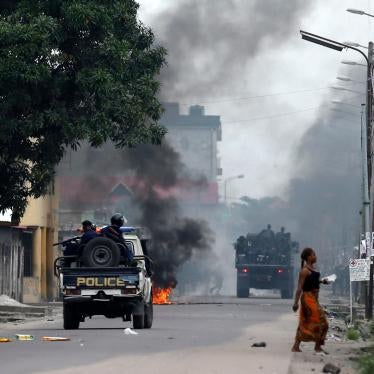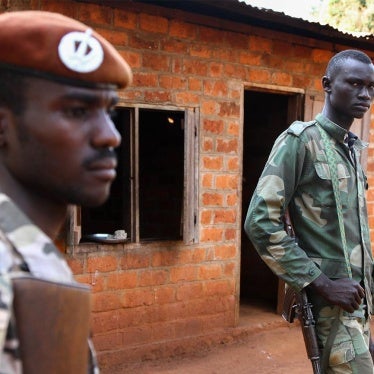For years Kenya has been a conduit for arms shipments destined to nearby areas of violent conflict. More recently, the flood of weapons has spilled back into Kenya, making the resort to violence more likely -- and more deadly. The spread of small arms and patterns of election-year ethnic violence threaten to endanger human rights as the country gears up for the next round of elections, anticipated for late 2002.
Human Rights Watch's report "Playing with Fire: Weapons Proliferation, Political Violence, and Human Rights in Kenya" documents the dangerous nexus between arms availability and ethnic attacks in Kenya. It highlights politically instigated armed violence on Kenya's coast during the last general election cycle, in 1997. More than 100 people were killed and over 100,000 people displaced in weeks of attacks in a quiet resort area.
The report includes first-hand testimony from perpetrators of the attacks who said they were backed by ruling party politicians. They gave detailed accounts of how they were recruited, armed, trained, and led to attack ethnic communities that were viewed as likely opposition voters in the 1997 elections.
From 1998 to 1999 a government commission of inquiry in Kenya known as the Akiwumi Commission examined that and other cases of inter-ethnic violence, including other incidents attributed to the ruling party. Its report, issued nearly three years ago, has yet to be made public. The release of the HRW report helped spark renewed debate in Kenya about the impunity for those who have fomented ethnic violence. It was followed by renewed calls for the release of the Akiwumi report in the media, in parliamentary debate, and by civil society groups.
The HRW report was launched with a press conference in Nairobi on May 31. It was covered extensively by the Kenyan media and international press, including the Los Angeles Times, the Chicago Tribune, BBC World Service, VOA, AP, Reuters, and AFP.





